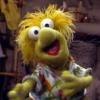The Riddle of the Bonds
#1

Posted 02 March 2008 - 10:44 AM
The book, which has been reprinted to coincide with the centenary of Ian Fleming's birth, takes a mischievous off-hand idea of Fleming's and runs with it. The idea appears in You Only Live Twice; in M's obituary of Bond, he says that as a result of the amazing coups Bond pulled off during his career, he became something of a public figure. The result was that a series of popular books came to be written around him 'by a personal friend and former colleague of James Bond':
'If the quality of these books, or their degree of veracity, had been any higher, the author would certainly have been prosecuted under the Official Secrets Act. It is a measure of the disdain in which these fictions are held at the Ministry, that action has not yet - I emphasize the qualification - been taken against the author and publisher of these high-flown and romanticized caricatures of episodes in the career of an outstanding public servant.'
Pearson takes on this premise that Bond was a real person, claiming that Fleming was given permission to write the books by MI6 as part of a deception operation to convince the Russians that the mighty agent they had been battling was in fact a myth. Pearson did a magnificent job, from the gradual build-up of clues - a letter from a former lover after his biography of Fleming appears to a summoning to lunch with a surly MI6 man - to the Citizen Kane style search for a middle-aged Bond reluctantly resting up in Bermuda. The prose style is not exactly languid, but it's very British in a le Carr
#2

Posted 02 March 2008 - 10:55 AM
Funny how fans go beserk with hatred of the Tamahori codename theory for the films, yet seem to tolerate something very similar in the world of the literary Bond.
#3

Posted 02 March 2008 - 12:04 PM
Don't the MONEYPENNY DIARIES books also use the idea that James Bond as we think we know him from the books was just a made-up name for someone that a chap called Ian Fleming wrote about? (I'm not 100% sure on this, which is why I ask.) It's getting to be almost an old standby of the Bond series!
Funny how fans go beserk with hatred of the Tamahori codename theory for the films, yet seem to tolerate something very similar in the world of the literary Bond.
About the Moneypenny Diaries: yes, indeed, Kate Westbrook (the fictional author) tries to know what was the real name of the secret agent hidden behind this pseudonym. Maybe we'll learn more in the 3rd and last one later.
#4

Posted 02 March 2008 - 02:05 PM
Don't the MONEYPENNY DIARIES books also use the idea that James Bond as we think we know him from the books was just a made-up name for someone that a chap called Ian Fleming wrote about? (I'm not 100% sure on this, which is why I ask.) It's getting to be almost an old standby of the Bond series!
Funny how fans go beserk with hatred of the Tamahori codename theory for the films, yet seem to tolerate something very similar in the world of the literary Bond.
- The 'James Bond was real' theory is, of course, highly implausible. But it is Ian Fleming's theory.
- It also makes a bit more sense than the codename theory, which falls apart almost as soon as you start looking at it. They all just happen to like their vodka martinis made the same way? Why? The 'real Bond' theory also has plenty of holes, but it's a lot easier to explain and much neater.
- It's still a daft theory - but John Pearson handled it superbly, with wit, elegance, a great deal of care, some beautiful writing and even a dash of pathos. It's easily the best continuation novel I have read. Read it!
- My post above is about something rather specific in Pearson's novel - I know it's a lot of text (a peril of reading online coupled with my loquaciousness). That stuff starts at paragraph 6.

#5

Posted 02 March 2008 - 02:54 PM
The 'James Bond was real' theory is, of course, highly implausible. But it is Ian Fleming's theory.
Sure, but in that case YOU ONLY LIVE TWICE and, presumably, THE MAN WITH THE GOLDEN GUN are the only two "real" adventures of Fellmingggg's Bond. Not that I mind that, though.
Fanwanking a little, I wonder whether this "personal friend and former colleague of James Bond" is Tanner.
They all just happen to like their vodka martinis made the same way? Why?
I think I've already fanwanked the answer to that one in another thread. It's all part of the British secret service's brainwashing.
It's easily the best continuation novel I have read. Read it!
What, better than COL----, oh, yes, I remember your views on that one.
My post above is about something rather specific in Pearson's novel - I know it's a lot of text (a peril of reading online coupled with my loquaciousness). That stuff starts at paragraph 6.
Yep, understood. Interesting stuff, as usual, spy, but had nothing to add to it. Sorry for taking things off-topic, though.
#6

Posted 02 March 2008 - 03:38 PM
I think in view of all what you've dug up so far regarding the operation outline for Dalzel-Job's mission I only can think of Fleming's article as a referece to the very mission he has devised and one of the men of his own 30 AU has carried out. The point in stating that 'it never happened' and chosing Wangerooge as one of the possible places would then be a kind of in-joke, aimed at the small number of men that knew the thruth about the affair that at 1960 certainly was still under official tape.
That Pearson on the one hand questioned Dalzel-Job but didn't regard him as a potential real-life Bond would seem to me to mainly stem from a similar point-of-view: Dalzel-Job's wartime actions being classified.
Of course his figure would have tallied with Pearson's would-be-biography of James Bond. But after all how could Pearson have included Dalzel-Job without mentioning classified facts? So it would have seemed easier to omit this connection altogether.
The 'James Bond was real' theory is, of course, highly implausible. But it is Ian Fleming's theory
Well, I for one never really bothered with that theory. In my view this in-joke of Fleming referred to Bond's world where a former collegue of Bond (not Fleming) wrote some popular thrillers (not the Bond books) that contained some elements of Bond's adventures but not the actual name (which is James Bond) or the actual events. But those-in-the-know of course recognized the similarities.
#7

Posted 02 March 2008 - 05:00 PM
Two points:
I think in view of all what you've dug up so far regarding the operation outline for Dalzel-Job's mission I only can think of Fleming's article as a referece to the very mission he has devised and one of the men of his own 30 AU has carried out. The point in stating that 'it never happened' and chosing Wangerooge as one of the possible places would then be a kind of in-joke, aimed at the small number of men that knew the thruth about the affair that at 1960 certainly was still under official tape.
That Pearson on the one hand questioned Dalzel-Job but didn't regard him as a potential real-life Bond would seem to me to mainly stem from a similar point-of-view: Dalzel-Job's wartime actions being classified.
Of course his figure would have tallied with Pearson's would-be-biography of James Bond. But after all how could Pearson have included Dalzel-Job without mentioning classified facts? So it would have seemed easier to omit this connection altogether.
Always good to hear your views, Trident, and you've very effectively crystallised the matter there.
The only thing that doesn't fit is that Dalzel-Job himself did not specify that Fleming was involved in his memoirs, published in 1991. Two chapters after he describes his mission on Atle
#8

Posted 02 March 2008 - 05:24 PM
#9

Posted 02 March 2008 - 05:26 PM
So here's an alternative theory. Fleming was not involved in Dalzel-Job's mission, but was certainly in a position to have heard of it. It's rather exciting, Bondish stuff. In the article he wrote in 1960, which was about Riddle-of-the-Sands country (Pearson doesn't say where it was published or precisely why he was writing about it), Fleming discusses a mission very similar to Dalzel-Job's, but claims it was his idea; it was planned for somewhere slightly different; and it never took place. This would have been a little underhand of him - but is not quite as bad as taking credit for planning the real mission, did not reveal any secrets, and would only have been distasteful to the few people who knew of Dalzel-Job's mission. Fleming may even have intended it as a compliment to Dalzel-Job, a nudge and a wink.
Perhaps Dalzel-Job revealed this in his correspondence to John Pearson, and included a detailed description of his mission, plus photos, along the lines of what he published in 1991. Pearson couldn't include the material, either because it was still classified, rather too damaging to Fleming, a bit irrelevant or perhaps even all three. Perhaps he had notes from Fleming about a Bond novel using Dalzel-Job's mission. Anyway, when he came to writing his Bond biography, he merged the elements of The Riddle Of The Sands with Fleming's article and the real mission he had details of but could not previosuly reveal 'straight' and gave them all finally to Bond. This wouldn't be too far removed from some of the other games he plays in the novel, and Fleming does seem to have been inspired by some other details of Dalzel-Job's wartime career - for instance, he had the same rank as Bond in the RNVR, was an expert skiier, and was behind enemy lines in the Ardennes.
But it's all speculation, of course. I really have no idea how to explain it.
Yes, speculation but still a pretty good explanation that has the obvious advantage of adding up the known facts without employing any outlandish far-off theories. Most likely pretty close to the actual events and reasons I should think.
Edited by Trident, 02 March 2008 - 05:27 PM.
#10

Posted 07 January 2009 - 06:44 PM
In Part II of the chapter titled Fleming's War, Pearson quoted an article Fleming wrote in 1960, in which he talked about how he had thought up a Riddle Of The Sands-style plan during the war for himself and an 'intrepid wireless operator' to be transported to one of these islands - he named Wangerooge among them - and 'dig themselves in' to report U-boat movement.
I recently realised the article was part of THRILLING CITIES.



